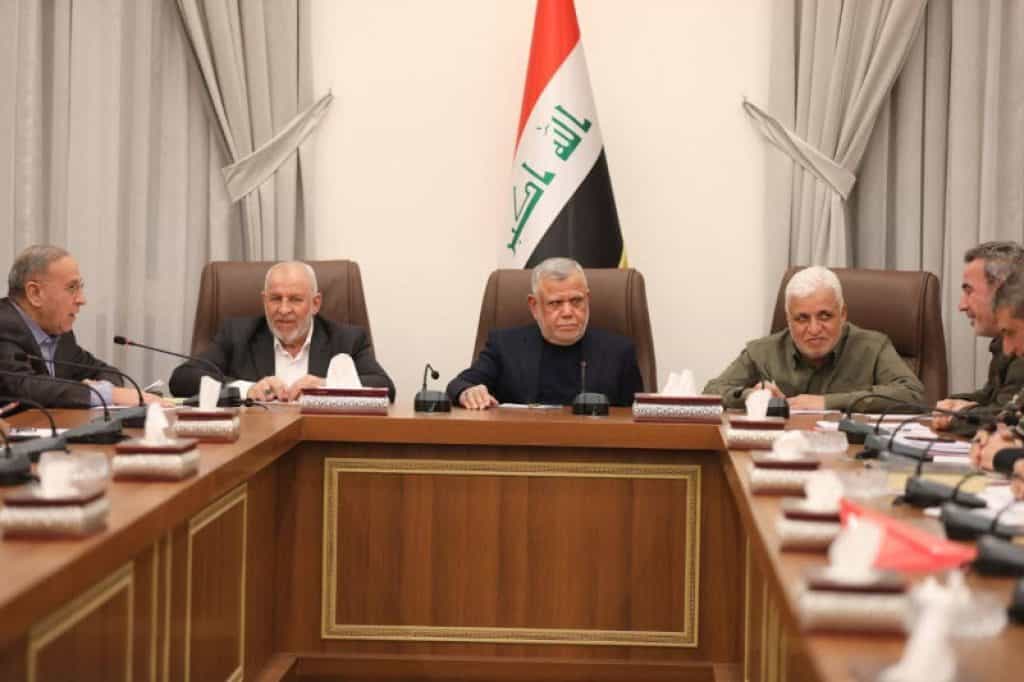
The US is reportedly applying pressure on the Iraqi government and Iran to disband Iraq’s pro-Iranian militias. These efforts come amid calls from some Iraqi leaders to dissolve the militias or integrate them further into Iraq’s security forces, along with pushback from militias and their backers.
US President Donald Trump sent a letter to Supreme Leader of Iran Ali Khamenei in early March to open discussions on Iran’s nuclear program. Ambassador to Iraq Mohammad Kazem al Sadegh said that Trump’s letter also called for disbanding Iran-backed militias in Iraq, including the Popular Mobilization Forces (PMF) and other armed factions.
The PMF, a conglomeration of militias almost exclusively backed by Iran, formed to fight the Islamic State (IS) in 2014 as an element of the Iraqi government. It contains many US-designated foreign terrorist organizations, some of which have attacked US forces and interests in the region, including Kataib Hezbollah, Asaib Ahl al Haq, and others.
Iraqi Prime Minister Mohammed Shia al Sudani denied that Trump’s letter to Iran contained a demand to dissolve the PMF. However, there have been various reports of US pressure on Iraq to resolve the issue of Iran-backed militias since Trump began his term.
Within days of his inauguration, Trump instated National Security Presidential Memorandum 2, which reimposes maximum pressure on Iran and aims to counter its regional influence. On February 25, US Secretary of State Marco Rubio called Sudani to discuss “the U.S.-Iraq strategic partnership” and “reducing Iran’s malign influence.” In early March, the Trump administration terminated a preexisting waiver that had allowed Iraq to purchase Iranian energy despite sanctions. US Defense Secretary Pete Hegseth also instructed Sudani to ensure that weapons are only being used by the Iraqi state.
Iraqi officials have expressed concern over potential repercussions to the US-Iraq relationship if Iraq fails to address the militia issue. In the days before Trump’s swearing-in, Iraqi Foreign Minister Fuad Hussein said Iraq was trying to reach an arrangement with the militias to disarm. However, militia leaders have defied calls to lay down their arms.
Following the start of recent US airstrikes against the Houthis, the Iran-backed terrorist group in Yemen, Iran and Iran-backed militias in Iraq have been concerned about potential US action against Iraq. Iran’s Islamic Revolutionary Guards Corps-Quds Force (IRGC-Q) Commander Esmail Qaani visited Baghdad in the days following the start of the US operation in Yemen, according to Iraqi media. Qaani supposedly warned the Iraqi militias not to carry out military activity out of concern it may provoke an American response. Iranian-backed militias in Iraq moved weapons, headquarters, and other potential targets in mid-March out of fear of American or Israeli strikes, according to local sources.
Iraqi media reports indicate that non-integrated Shiite militias have agreed to discuss integrating further with the government by joining the PMF and will meet in early April to discuss the process. However, several militias have also recently threatened the US both implicitly and explicitly.
Iraq’s complex militia landscape contains a range of sectarian groups, some of which operate within the PMF, technically an Iraqi government organ, and others wholly outside of the state. Iraqi officials have consented to US requests to bring all weapons under the control of the government. However, it is with the understanding that the PMF is considered a legitimate government institution.
Iraq’s PMF contains many militias and leaders known to be backed and loyal to Iran. However, beyond reports of US pressure to disband pro-Iranian militias, the Trump administration has not publicly provided explicit goals for the PMF.
Iraq is currently attempting to pass legislation that updates and formalizes the PMF’s status. The text of the proposed law has not been provided, and it is presently delayed over procedural concerns. An agreement could not be reached on the previous PMF Service and Retirement law introduced earlier this year.







